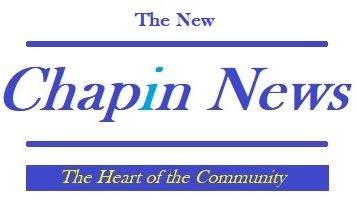By Tom Poland
TomPoland.net
It’s annually voted the most popular Christmas song. Perhaps it’s the most controversial. When Savannah resident James L. Pierpont composed the song he sowed the seeds for a dispute. Pierpont wrote his Christmas classic in the autumn of 1857. You know the song as Jingle Bells, but One Horse Open Sleigh was its original title. Pierpont wrote it as a Thanksgiving song.

We can thank the late Charlie Smith of Wrightsville, Georgia, for this Christmas story. Charlie emailed me a link to a story and the following note: “Tom, this is a story from ten or so years ago and M.H. Rahn has since passed away. M.H. was married to my first cousin on the Smith side of the family. Not only was he interested in history, mainly Savannah’s, but he also was a self-made millionaire. Started with a fruit stand on the old Bay Street Road.”
Rahn did more than that. He riled up the folks in Medford, Massachusetts. Once upon a time Jingle Bells, belonged exclusively to their city. Until 1969 Medford, just outside Boston, could claim the carol without challenge. And then M.H. Rahn linked the song’s composer to Savannah. His discovery set Medford and Savannah to feuding.
When the snow settled here’s what we know. James Pierpont served as the organist at Savannah’s Unitarian Church in 1857. Flash forward now. Rahn’s daughter is playing Jingle Bells, in Savannah on the piano decades later. Rahn glances over at the sheet music and sees a familiar name, Composer: J. Pierpont. Rahn knew of two J. Pierponts. The name on the sheet music, was it a mere coincidence?
Rahn had read letters John Pierpont Jr., pastor at Savannah’s Unitarian Church, had written from 1852 to 1858. The letters to Medford said brother James had come to Savannah as an organist and music teacher. Further research revealed James settled in Savannah.
As for making his discovery known, M.H. Rahn said, “I saw this as something to help us get publicity for the church.” Well it did a whole lot more. It started a controversy. Savannah claimed it had originated a Christmas classic. Up went a marker. The next time you are in Savannah go to the historic district. Across from Troupe Square where Habersham and Macon Streets intersect you’ll find a historic marker:
James L. Pierpont (1822-1893), composer of Jingle Bells, served as music director of this church in the 1850s when it was a Unitarian Church located on Oglethorpe Square. Son of the noted Boston reformer, Rev. John Pierpont, he was the brother of Rev. John Pierpont, Jr. minister of this church, and uncle of financier John Pierpont Morgan. He married Eliza Jane Purse, daughter of Savannah mayor Thomas Purse, and served with a Confederate cavalry regiment. He is buried in Laurel Grove Cemetery. A prolific songwriter, his best-known Jingle Bells, is world famous.

Hold on a minute. About 900 miles north in Medford, you’ll find a plaque at 19 High Street in Medford Square. This plaque marks the birthplace of Jingle Bells, and claims Pierpont wrote the song there in 1850 at the Simpson Tavern, a boarding house with the only piano in town. The Medford Historical Society claims that the town’s popular sleigh races inspired the song.
The problem is the song’s copyright date. That casts doubt on the possibility that Pierpont wrote the song in Medford. By 1850 Pierpont served as the organist and music director of the Unitarian Church in Savannah. In August that same year, James Pierpont married the mayor of Savannah’s daughter. The 1857 copyright date sits at the heart of the controversy.
An article (MSN.com December 2003) on this controversy posed a question: “Did Pierpont write it in Savannah as a piece of homesick, holiday nostalgia? Or did he compose it years before in Medford, not seeing the tune as a moneymaker until he drifted south?”
The controversy grew legs in 1985. That’s when Savannah erected a Jingle Bells, marker across from the church and then-Mayor John Rousakis declared the tune a Savannah song. That didn’t sit well with the folks in Medford. Ill-tempered letters flew back and forth.
“In the words of Shakespeare, it is our intention to keep our ‘honor from corruption,”’ Medford Mayor Michael McGlynn wrote in a 1989 letter to Rousakis. “We unequivocally state that ‘Jingle Bells’ was composed … in the Town of Medford during the year 1850.”
Rousakis fired back. “James L. Pierpont is still here with us,” noting the composer’s Savannah burial. “I am sure (Pierpont) will join us in spirit when we finally and formally proclaim Savannah, Georgia, as the birthplace of ‘Jingle Bells.’ ”
Ace Collins, author of the 2001 book Stories Behind the Best-Loved Songs of Christmas, says he found more proof of Medford being the rightful birthplace while researching his chapter on Jingle Bells.
Collins found a New England newspaper from the early 1840s that mentioned “One Horse Open Sleigh” debuting in Medford at a Thanksgiving church service. Pierpont gave a repeat performance of the popular song at Christmas.
When it comes to which city owns bragging rights, Collins stays neutral. Pierpont may have written his song in Medford, said Collins, but Savannah made him realize its universal appeal. “Savannah was the key. If it can play in Savannah, where snow was a novelty, it can play anywhere.”
No one knows the definitive answer to this Christmas Carol mystery. The one person who can set us straight is no longer with us. Pierpont walked this green earth from 1822 to 1893. He ran away to sea at fourteen and later went to California during the Gold Rush. During the Civil War, he joined a Confederate cavalry regiment in Savannah in opposition to his family’s staunch abolitionist views.
James L. Pierpont apparently was a self-made Southerner and for sure a nomad, but his best song would wander farther than he ever could. Jingle Bells, you may recall was the first song broadcast from space by Gemini Six astronauts Tom Stafford and Wally Schirra. On December 16, 1965, they sent this report to Mission Control: “We have an object, looks like a satellite going from north to south, probably in polar orbit. I see a command module and eight smaller modules in front. The pilot of the command module is wearing a red suit.” The astronauts then produced a smuggled harmonica and sleighbells and broadcast a rendition of Jingle Bells.
So, is this song that’s out of this world actually a song of the South? Why not? Let’s lay claim to it and thank M.H. Rahn for his diligent research. As for James L. Pierpont he met a fate common to other songwriters. Among the many composers of songs walk those lonely souls known as one-hit wonders. Add James L. Pierpont’s name to the list. Pierpont passed away long ago and his song has since passed into public domain. The controversy, however, remains alive as it dashes through the snow up North and dashes through sunshine, pines, oaks, and Spanish moss down South.
Pierpont’s song gets changed every now and then and I for one am not a fan of the singing dogs’ version of Jingle Bells nor do I like hijacking Christmas carols and converting them to advertising jingles. But that’s a jingle of another sort and a story for another day.



